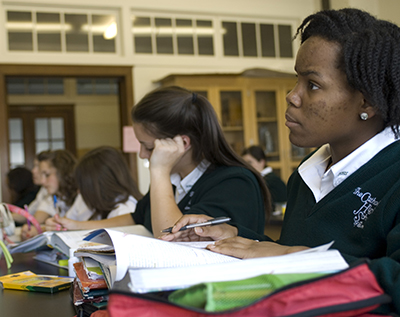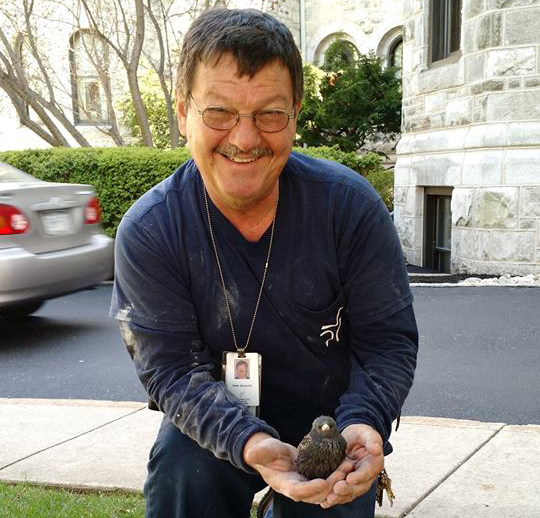How Earth Friendly Are You?
To listen well is the mark of a true friend—and listening is a habit we learn through years of freeing ourselves enough to enter into another’s world. What we seldom realize is that the Earth itself is listening to us—and it speaks to us also, if we only make the effort to listen. But the earth is old and it speaks quite softly.” – Al Fritsch, SJ
Environment & Health
| 1 | 5 | 10 |
|---|---|---|
| Never | Sometimes | Always |
Read the 10 statements below. In the adjacent box, write the number corresponding to your answer. E.g. ‚ 1= Never. When you finish, add the numbers to get a score.
| Questions | Answers |
|---|---|
| I buy organic pesticide free food. | 1. _____________ |
| I keep hazardous wastes (old batteries, solvents, paints, oils, grease, etc.) out of the garbage or sewer. | 2. _____________ |
| I discard electronics such as computers, cell phones, and other devices using a designated recycling program. | 3. _____________ |
| I make an effort to know my watershed and protect it. | 4. _____________ |
| I use non-toxic, biodegradable soaps and detergents | 5. _____________ |
| I use glass, metal, paper, or ceramics instead of plastics for food storage. | 6. _____________ |
| I use chlorine-free, recycled paper products — i.e. coffee filters, paper towels, and toilet paper. | 7. _____________ |
| I buy clothes that don’t require dry-cleaning. | 8. _____________ |
| I avoid using pesticides and herbicides on the lawn, garden or houseplants. | 9. _____________ |
| I avoid eating fish with high concentrations of mercury. | 10. _____________ |
Tips for Living More Lightly
- Use organically farmed food to protect our soil, our water and our health.
- Take nickel/cadmium batteries to hazardous waste collection site. Batteries thrown away by consumers are the single largest source of cadmium pollution in the environment.
- Learn about local opportunities for keeping all kinds of things out of the land fill. The average computer, for example, contains 3-5 pounds of lead. Ways to recycle computers and others electronic waste vary widely according to region. Learn more about your watershed.
- Avoid products containing toxic ingredients−chlorine, phenols, formaldehyde, cresol, and the benzenes−commonly found in household cleaners. Many of these cancer-causing products find their way back into drinking water when dumped into the sewer system.
- Avoid plastic packaging and bottles, choosing glass, metal, paper, or ceramics instead.
- Use chlorine-free paper to help to keep dioxin out of your drinking water.
- Avoid clothes that need dry cleaning. The Perchloroethylene (PERC) used in dry cleaning generates large amounts of toxic waste.
- Find “green” ways to manage pests.
- Mercury concentrates in fish, making this important food a source of mercury poison. Mercury is a potent neurotoxin that can affect the brain, spinal cord, kidneys, and liver. Learn more www.thefishlist.org.
Resources
Health & Safety Information on Household Products







